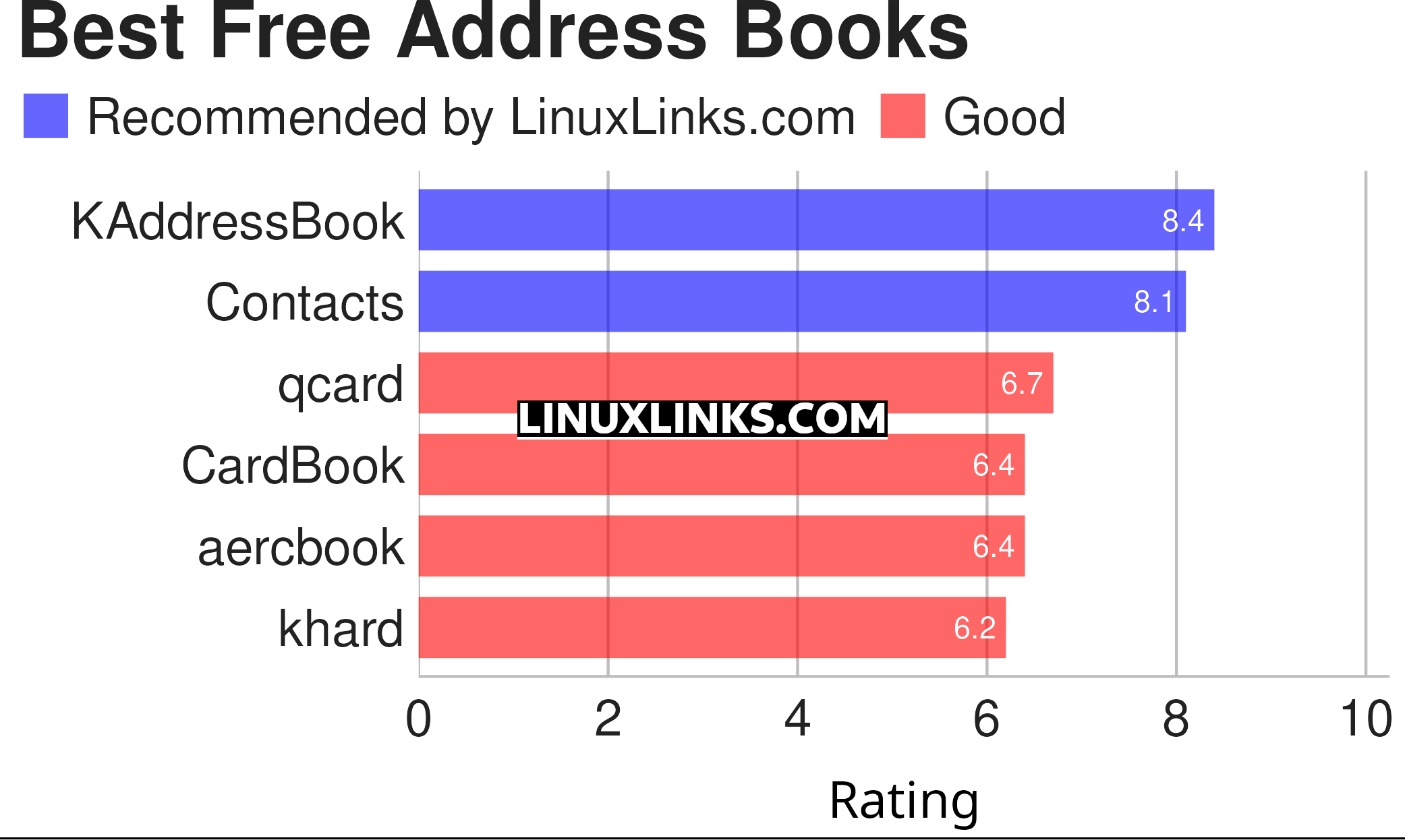An address book is a database that stores names, addresses and other contact information for a computer user.
Address books allow easy access to the user’s friends, family, business associates and others by maintaining their email and other contact details on their computer.
This article focuses on standalone software. CardOver is tightly integrated with Thunderbird but it can also run independently.
Here’s our verdict captured in a legendary LinuxLinks-style chart. We only feature free and open source software here.

Let’s explore the 6 address book managers. For each program we have compiled its own portal page, a full description with an in-depth analysis of its features, screenshot of the program in action, together with links to relevant resources.
| Address Book Managers | |
|---|---|
| KAddressBook | Supports a wide range of services including NextCloud, Google Contacts |
| Contacts | GNOME's integrated address book. It is written in Vala and uses libfolks |
| qcard | CLI addressbook application for CardDAV servers |
| CardBook | Thunderbird address book based on CardDAV and vCard standards |
| aercbook | Minimalist address book for the aerc e-mail client |
| khard | Console vcard client |
There are many other apps that include an integrated address book such as Evolution.
This article has been revamped in line with our recent announcement.
 Read our complete collection of recommended free and open source software. Our curated compilation covers all categories of software. Read our complete collection of recommended free and open source software. Our curated compilation covers all categories of software. Spotted a useful open source Linux program not covered on our site? Please let us know by completing this form. The software collection forms part of our series of informative articles for Linux enthusiasts. There are hundreds of in-depth reviews, open source alternatives to proprietary software from large corporations like Google, Microsoft, Apple, Adobe, IBM, Cisco, Oracle, and Autodesk. There are also fun things to try, hardware, free programming books and tutorials, and much more. |
